The Nigerian Naira’s continued slide against the dollar and other foreign currencies is subject to the vagaries of the high demand for the dominant currency in Nigeria – the dollar, for payment of foreign school fees, medical treatment abroad, and imports of food, clothing, cars and other luxuries, investigation by Persecondnews.com has revealed.
With the dominance of the U.S. dollar in many countries, every other currency’s exchange rate, such as the exchange rate of the British Pounds Sterling, derives from the price of the Dollar.
In the global economy including that of Nigeria, the exchange rate is determined by the interplay of demand and supply for the currency.
For instance, the Naira was powerful and stronger than the U.S. Dollar or at least at par in the 1970s and 1980s because of less demand for the international currency but its better supply in the country’s economy at that time.
On the demand side, in the 1980s and 1990s, the number of Nigerians studying abroad (for which US Dollars is needed from Nigeria for their upkeep) was negligible.
Also, medical tourism, food imports and importation of all brands of vehicles as it is today were a rarity and at low ebb.
For some obvious reasons, Nigerians’ crave to study abroad has and is still costing the country a fortune in terms of foreign exchange.
According to the UNESCO’s Institute of Statistics, the number of Nigerian students abroad has increased from less than 15,000 in 1998 to more than 71,000 in 2015 and by 2018, the number had risen to 96,702 students (World Bank). Whereas during the period –1980s and 1990s – it is hard to find Nigerian parents sending their children and wards abroad for common primary and post-primary education not to talk of university education.
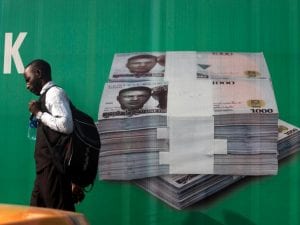
But in Nigeria of today because of the huge number of Nigerian students abroad foreign exchange requests the Nigerian banks receive for school fees are high and surprisingly, some of the children are in neighbouring African countries.
Perhaps the lingering and unresolved issues of instability in the public school system, dearth or poor infrastructure, falling standard of education and incessant lockout or strike by university lecturers might have forced parents, who can afford it, to look elsewhere for a sound education for their children without counting the cumulative effect on the country’s economy and pressure on foreign exchange.
As a corollary, between 2010 and 2020 foreign education has cost Nigeria a whopping $28.65 billion according to the CBN’s publicly available Balance of Payments Statistics, and if one takes a deep breath and ponder for a moment if this amount was part of the CBN’s Foreign Exchange Reserves. The impact would be unimaginable as the Naira would have been much stronger today.
The same goes for seeking medical care abroad. The Nigerian Sovereign Investment Authority (NSIA) says Nigerians spend over $1 billion annually on medical treatment abroad and this fact is corroborated by a review of the Central Bank’s balance of payment data which indicates that Nigerians have spent $11.01 billion on healthcare-related services just in the last 10 years!
In the last decade, foreign exchange demand specifically for education and healthcare had cost the country almost $40 billion.
Similarly, in 1980, food imports cost Nigeria a paltry $2.63 billion. It was kept low because Nigerians were mostly eating what is produced locally. But guess what by 2011, food imports had skyrocketed to $18.91 billion annually although it has come down to $14.84 billion by 2019 as a result of the agricultural polices and investment of the nation’s apex bank under the helmsmanship of Mr Godwin Emefiele.
By 2014, the country’s annual import bill had risen astronomically to $67.05 billion, though it has gradually fallen to $54.71 billion in 2021.
Akin to the foregoing demand and supply pattern in the various needs of the country is the unchecked importation of vehicles on a large scale – all brands of luxury and exotic cars costing hundreds of millions of dollars.
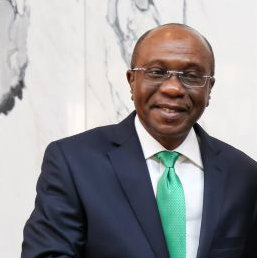
Again, in 1980, over 75 percent of the cars on Nigerian roads were made in the country by either Volkswagen in Lagos, Peugeot in Kaduna, or some other automobile companies. But today, the story has changed with more than 99 percent of the cars in Nigeria are imported (for which dollars are needed to make payment).
In that period of the 1980s, most of the clothes or fabrics Nigerians wore were from Nigerian textile mills located in Funtua, Asaba, Kano, Lagos (Aswani in Isolo) or other towns and cities too numerous to mention.
In contemporary Nigeria today, almost all the clothes we wear are imported fabrics with most people not interested to wear local fabrics like tie and dye (adire) produced in UNESCO-accredited factories in Abeokuta, Osogbo and others.
Another area the country needs to watch is the humongous foreign exchange spent on expatriates brought into the country for business and professional services.
Available statistics report that Nigeria and its corporates spent a sum of $55 billion on foreign expatriates for business, professional, and technical services in the last 10 years, from 2013 or so.
Similarly, Personal Travel Allowances gulped a total of US$58.7 billion over the same period. In fact, in the 9-month period between January and September 2019, the CBN sold US$9.01 billion to Nigerians for personal foreign travels. Still on demand for US Dollars, in 1980, Nigeria’s total imports (for which we need dollars to pay our suppliers) was US$16.65 billion per annum.
For Nigerians particularly the rich and businessmen to begin to cry wolf as to the high exchange rate in the country amounts to feigning ignorance of the various indices itemized above.
Consequently, with level of demand on education, healthcare, professional services, personal travel, and the likes, the exchange rate will definitely be under constant pressure to rise, particularly when the Central Bank neither prints US Dollars nor exports Nigeria’s crude oil.
For as long as the current circumstances prevail, the price of US Dollars will continue to rise, especially if its supply either remains constant or worse still, falls.
On the supply of the exchange rate, that is, the supply side of US Dollars in Nigeria, it is a truism that an economy must “earn” US Dollars for the supply to rise.
The productive base of the economy must be strong in order to produce goods and/or services that the rest of world is willing to pay for in US Dollars. In the case of Nigeria, we can do so either by oil exports or non-oil exports.
While we have seen from the analysis above that demand for US Dollars has risen tremendously over the past decades, its supply has unfortunately fallen sharply.
Again going back to 1980, import bill was $16.65 billion and that same year, Nigeria earned $25.97 billion in exports, leaving a “savings” of $9.32 billion.
So, in 1980, the country was able to meet all the demand for US Dollars from our supply of US Dollars and still had over US$9 billion to spare. In this instance, the exchange rate (the price of the US Dollar) will not rise because, like any commodity, its supply is more than the demand. By 1996, we earned US$59.83 billion from our exports.
That is, approximately US$59.83 billion was “supplied” into the Nigerian economy in 1996. Conversely, our import bill (the demand for US Dollars) for that year was US$25.71 billion, leaving us a surplus supply of over US$34 billion.
Indeed, from 2003—2013, we enjoyed a surplus of US$331.73 billion into the economy. During the same period, oil exports alone accounted for over US$798 billion. Of course, with such “excess” dollars, the exchange rate would be stable, and the Naira would be “strong”.
In the last 12 years, unfortunately, oil exports, which accounts for over 90 percent of our foreign exchange supply/earnings, have fallen from US$93.89 billion in 2011 to US$31.4 billion in 2020. This drastic decline, amongst other reasons, implies that the demand for US Dollars has exceeded its supply by about UD$18.45 billion over the last 7 years.
So, in general, just like the price of cows or cars, the price of the US Dollar in Nigeria is determined by the quantity of US Dollars that flow into the country as well as the quantity of US Dollars demanded by Nigerians.
It is instructive to examine other factors that affect the exchange rate in Nigeria. In addition to the fall in crude oil exports, reflecting organized theft, rampant high-level pipeline vandalism and exogenous factors, there are many other issues that adversely affect the supply of US Dollars into the Nigerian economy.
From a general outlook, Nigeria lose a lot of foreign exchange inflows when 80 percent of cargo ships and planes that bring goods to Nigeria (for which we pay dollars) leave our shores empty (implying we do not earn dollars from potential exports of goods they would have carried).
The question is how can we improve non-oil exports (and supply of US Dollars) when the balance sheet (loanable funds) of the Nigerian Export-Import (NEXIM) Bank is less than 10 percent of the balance sheets of comparable countries?
For example, the balance sheet of the Export-Import Banks of India, China, South Korea, Indonesia, and Turkey is $18.3 billion, $770.5 billion, $85.4 billion, $6.6 billion, and $25.9 billion respectively.
But abysmally that of our NEXIM Bank is only $423.4 million. How then can we compete in the export market and in the ability to earn US Dollars therefrom with this significant disadvantage in funding? Over the last several years, thousands of men have relocated their families abroad but continued to work here in Nigeria.
While these men are here earning Naira, their major expenses are in dollars for family upkeep, mortgages, car loans, and the like. This means we have a couple more thousands more people chasing dollars every day, every week, every month.
Without going into the reasons for their decisions but imagine that they were reversed and their families were here in Nigeria, the Naira would be significantly strengthened.
Why is it that it takes half the time and half the cost for a container to travel from China to Apapa than it will take for the same container to move from Apapa to Ojota? If it takes 21 days and 10 $8,500 for a 40-foot container to be shipped from China to Apapa, why should it take 42 days and $17,000 for the same container to be moved from Apapa to Ojota? How does this help international trade and the inflow of dollars into the economy?
In all of these, may we ask how the CBN policies and interventions have so far helped to stabilize the country’s exchange rate.
Impactfully and impressively, the CBN’s scorecard in massive investment in agriculture to boost local food production, in the power value chain to improve electricity supply, in cotton farming 11 to resuscitate our textile mills, in universities to enhance our educational quality, in manufacturing plants to boost local production, and in health care to curb medical tourism is something to behold and treasure.
One cannot forget in a hurry the CBN’s 41-item policy to curb imports of items we are producing or can produce locally after all, it has reduced imports from US$67.05 billion in 2014 to US$54.71 billion in 2021; the CBN RT200 FX programme to significantly improve non-oil export earnings; the Naira4Dollar policy that has lifted remittances from an average of US6 million per week in December 2020 to about US$92 million per week as of March 2022.
With all of these interventions and initiatives, one can now empathize with the CBN’s situation and understand that the exchange rate’s stability or the Naira strengthening is not rocket-science but requires us as a country to improve our US Dollars earnings capacity and reduce our appetite for importing anything and everything.
As the apex bank continues to keep a tab on the situations with results trickling in, it is a question of time that our problems which may appear significant, will be solved with tested and trusted solutions.
Assertively from the above analysis, it can be deduced that the real problem facing the exchange rate is the simultaneous decline in the supply of, and increase in demand for, US Dollars.
Holding one constant, any one of them would have been enough to put pressure on foreign exchange for the country, yet it is suffering from the two at the same time.
It is hereby posited that the issue of stabilizing the exchange rate in Nigeria is and should be a collective responsibility of all Nigerians even when it is the sole mandate of the CBN.
Again, if scapegoating of one another instead of looking introspectively and holistically at the issues driving the exchange rate and honestly working on changing our fortunes, the exchange rate will continue to suffer “undue, painful and avoidable pressures’’.












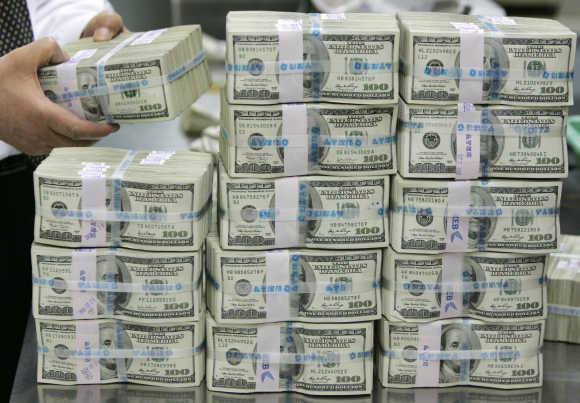

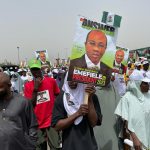
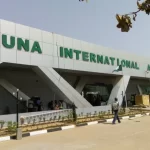






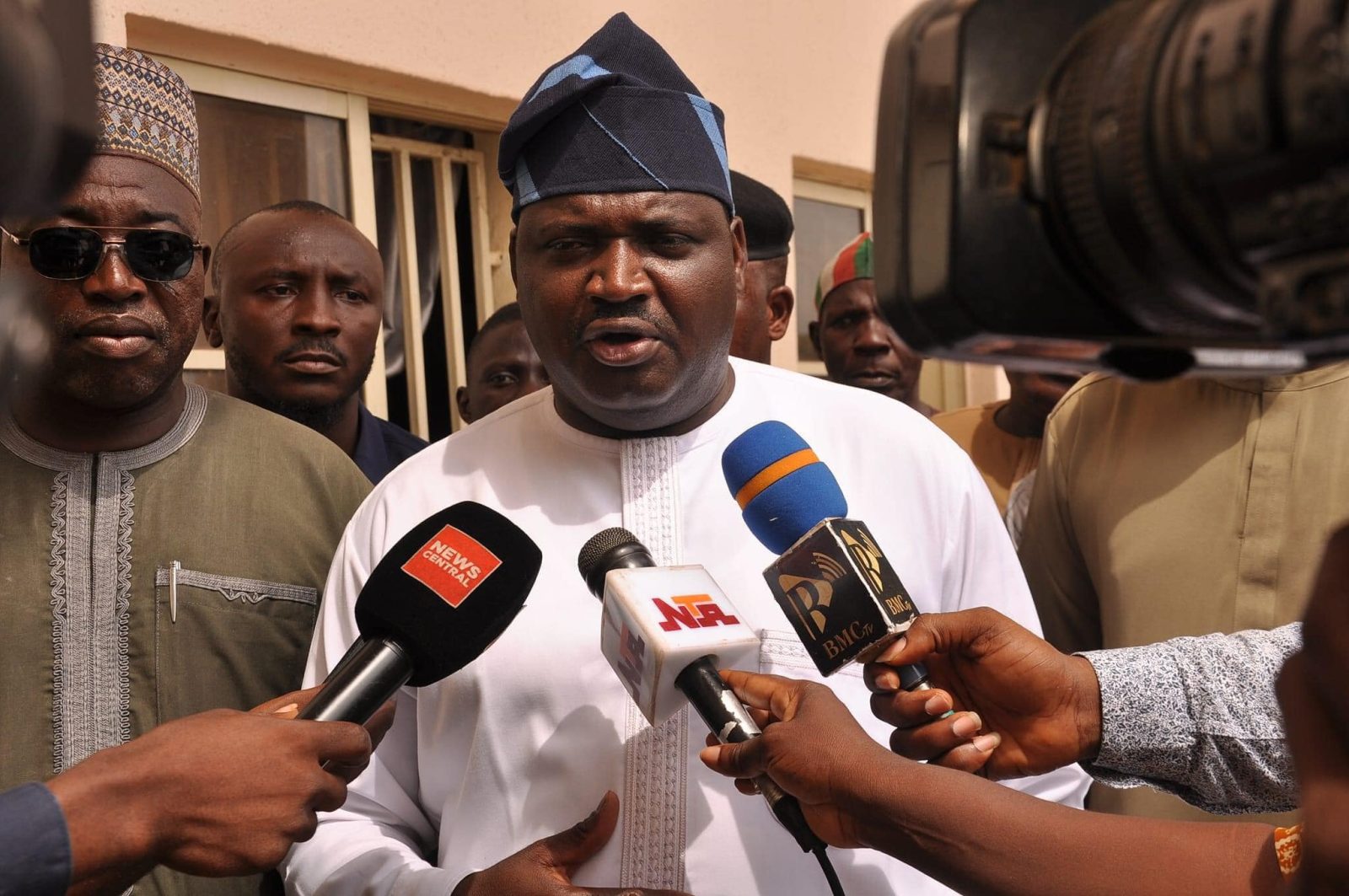

Leave a comment